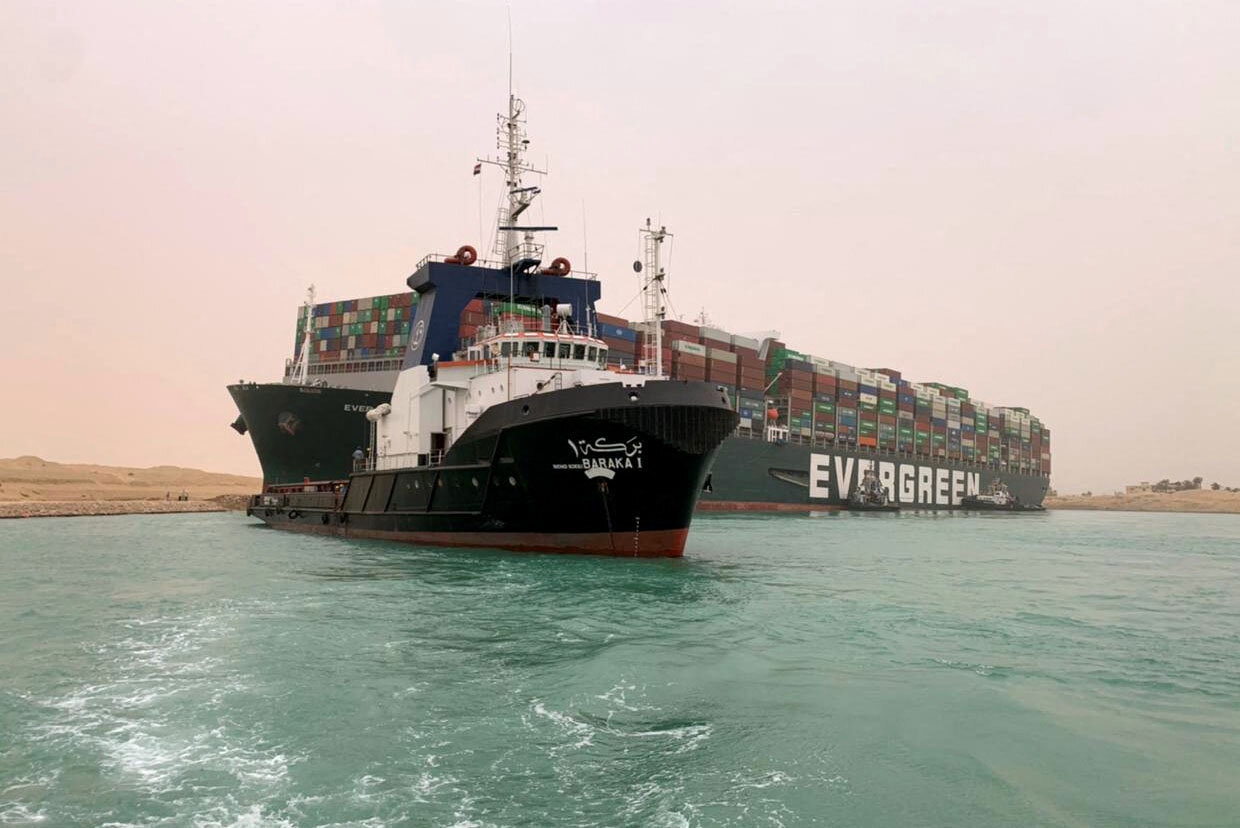

By Jacob Vito
It is one of the most important stretches of water in the world. Across its 120 miles, dozens of ships run carrying vast amounts of shipped goods. It’s the Suez Canal, and it is the shipping corridor between Europe and Asia. Due to a single ship running aground in its waters, it’s entirely shut down.
This Tuesday, a single cargo ship, the Ever Given, ran aground on the Suez banks. Its marooning blocked all paths through the vital artery, effectively closing the canal to the dozens of massive ships that use it daily.
Though the mishaps of a single ship may not usually cause major alarms, the canal that it blocks holds key importance. The Suez Canal accounts for 12 percent of world trade and connects Asia, the Middle East and Europe. Without it, the cargo would need to be either hauled on land or sailed around the entirety of Africa, both solutions that cost more time and money exponentially.
The money on the Suez’s ships is massive. Over 150 ships have become effectively stuck on either side of the canal, carrying countless goods and around 10 percent of the world’s daily oil. Because of this, oil prices rose 6 percent in just a day, with further increases more likely.
With this pressure, efforts to dredge the ship and get it out of the canal have already begun. A series of tugboats and other smaller vessels have attempted to move the ship back into deeper waters, with cranes and helicopters also being used to clear dirt and offload cargo, respectively.
However, righting the ship has proven difficult, and as transports continue to line up near the Suez, the situation will not get any easier. So, as efforts to reopen the canal stall, the Ever Given and the damage it has caused can serve as an important lesson––how fragile the world we’ve built for ourselves is.
The 21st century has rapidly expanded how people are connected. Yet, that expansion has also made the most vulnerable parts of the world’s populations, systems and infrastructure more potentially damaging than ever.
Yes, we have amazing feats of technology, science and engineering. We have supercomputers that can predict the movements of galaxies. We have trillions of dollars moving around every corner of the globe. But with one error: a boat or one virus in a body, it can all come crashing down.
There is nothing more human than volatility.
A long series of dramatic weather shifts and varying climates is what allowed for the evolution and proliferation of people in the first place. A volatile environment helped push humanity into the position it’s in today.
What’s more, challenges that seem insurmountable breed the most remarkable human innovations. Whether it be from war, economic collapse or natural disaster, many of the most considerable technological leaps humans have gone through have been during times of crisis. Thriving under adversity is not only in our lifeblood; it makes us stronger.
Situations like these can serve two purposes: both as an opportunity to innovate through adversity, but also as a time to question what makes such an event so damaging. How can this be avoided in the future?
In the case of Ever Given, the issue is in infrastructure. The Suez acts as a linchpin between the West and East, but such importance makes even a single off-course ship potentially cost billions.
So, what is the solution? Expand the avenues through which shipping is done. Increased globalization has put a strain on the logistics of many countries the world over, but investing in something as small as alternative and accessible land routes or alternative paths for the canal could mean such an issue never rises again. With preventative solutions, problems need not show themselves again in the first place.
And the next time a ship runs itself ashore, or a virus spreads or a recession looms, ask: what can we learn from this, and what can we do to fix it?

Jacob Vito is a first-year Community and Regional Development major at UC Davis. He is from western Pennsylvania.
Support our work – to become a sustaining at $5 – $10- $25 per month hit the link:






The cargo ship was freed earlier this morning.
https://www.cnbc.com/2021/03/29/suez-canal-traffic-resumes-after-cargo-ship-ever-given-is-removed.html
Two words: Keystone pipeline.
(Just kidding – I must have gotten the idea from “Satan’s advocate”, in the other article).
You may have been kidding about that but it’s important that we as a country remain energy independent.
Truth be told, “not building” a particular delivery system probably does not have much impact on global oil consumption (or therefore, global warming).
Theoretically, it could also encourage less-efficient ways to move the same oil.
But, increasing prices might have an impact regarding consumption. If they vastly increased gasoline taxes, that would probably (also) do the trick. 🙂
Either that, or have a permanent pandemic situation.
But, you can probably ask Gray Davis how popular it is to mess with government fees for cars or perceived failure to control other energy costs.
Next thing you know, we’ll get a sequel to the “Governator”. Some are already pissed about the lockdowns, housing forced upon communities that don’t want it, etc.